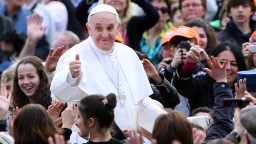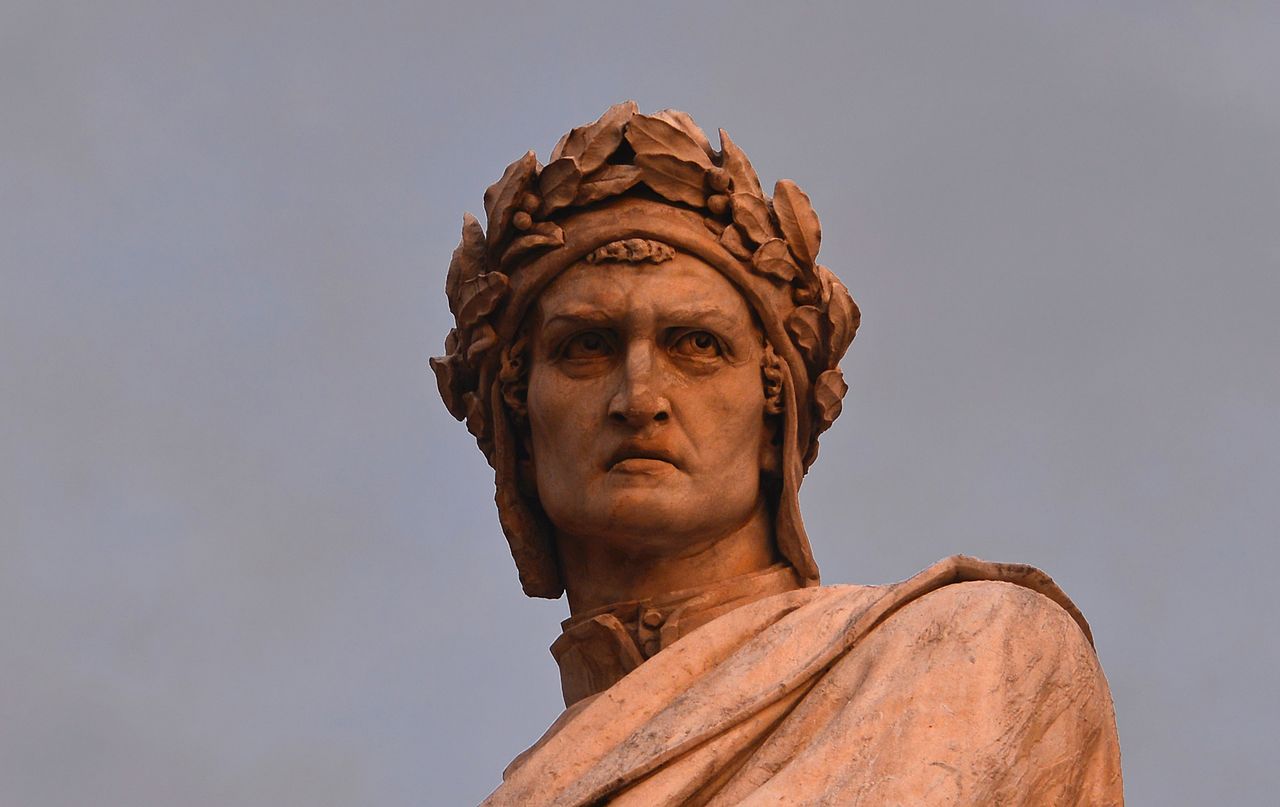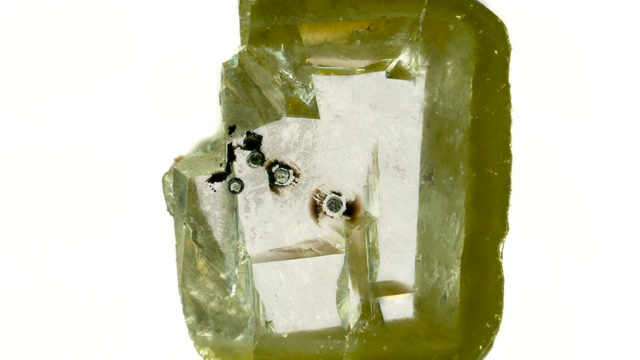The most incorrigible popes in the history of the Vatican
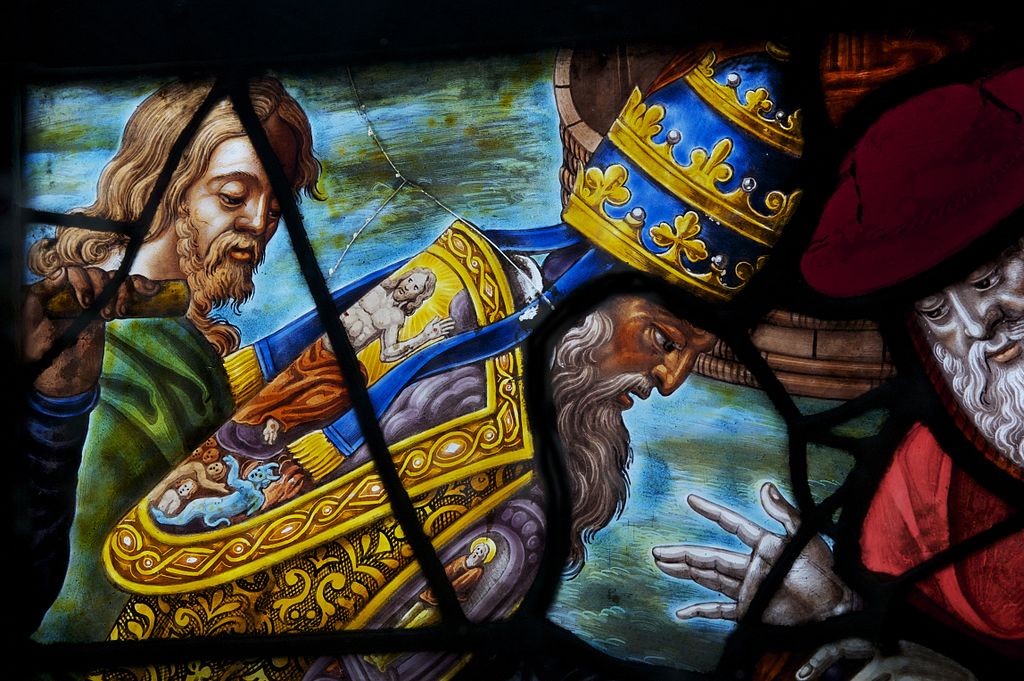
- From sexual predators to ambitious conquerors, the Roman Catholic Church has had no shortage of incorrigible popes.
- Throughout their tenure as holy fathers, these clergymen routinely ignored or contradicted the moral teachings of their own institution.
- Their controversial legacies shook the Church’s foundations, causing people to question the legitimacy of its very existence.
As a religious institution organized not by angels but imperfect human beings, the Roman Catholic Church has rarely if ever been able to live up to the lofty standards set by the omnibenevolent God whose very will it claims to represent and enforce.
Aptly titled books like The Bad Popes, written by the Jamaican-born author and historian E.R. Chamberlin, show us as much as they attempt to map out the saturnalian careers of the most incorrigible popes to have ever ruled over the Vatican. Though each of these popes thought they were as close to the grace of God as one could possibly be, they were — in fact — further removed from the ethical teachings of the Bible than just about any other members of their institution.
Like the kings and queens of medieval Europe whose loyalty they demanded, Chamberlin’s clergymen frequently dissolved the separation between church and state, meddling in the “temporal” world and its disreputable politics as they saw fit. Some popes openly engaged in sexual intercourse despite having vowed to remain celibate. Others were driven by greed and used their influence to hoard unholy amounts of wealth. A few were vindictive to the point of literally persecuting their opponents into the grave.
As a general rule, the regimes of these popes resembled those of the infamous Roman emperors Nero and Caligula. During their divisive and unpredictable reigns, cardinals and clerics alike lived in fear, for they knew history could often turn out stranger than fiction.
Stephen VI and the Cadaver Synod
Stephen VI, who ruled from 896 until 897, subjected the Roman Catholic Church to what may well be the most bizarre episode in its entire history.
Upon his ascension to the papal throne, Stephen put his predecessor, Formosus, on trial for perjury. This was in spite of the fact that Formosus was already dead, and had been for more than seven months when his jury finally convened. At Stephen’s orders, Formosus’ disintegrating corpse was exhumed from his tomb, dressed in papal robes, and placed onto his old throne. As Stephen read out the accusations of perjury, a deacon shook the corpse’s skull and uttered pre-written responses in its stead.
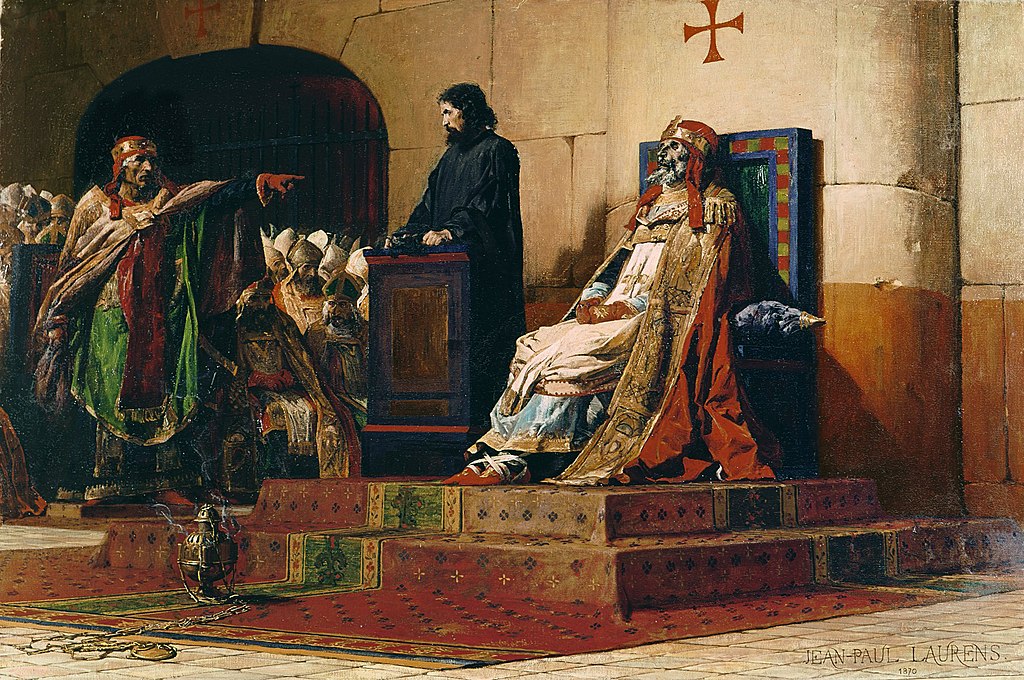
After his remains plead guilty as charged, Formosus was stripped and redressed in rags. Three fingers — the ones he had used to offer blessings — were cut off, while the rest of his body was then thrown into the Tiber, the same place Romans once disposed of their criminals.
Though stories of the so-called “Cadaver Synod” have long been told with an air of Caligulan insanity, many historians believe there actually was a method to Stephen’s madness. Writing for JSTOR Daily, Amelia Soth suggested he wanted to prevent Formosus from becoming a relic. Through relics, writes Soth, “saints continued to be members of the community. They were participants in the daily lives of the people that venerated them. In this sense, they were still alive. It was this continued presence that Stephen VI sought to deny his predecessor.”
The sacrilegious nature of the Cadaver Synod was not lost on those whom Stephen had obligated to participate, and many interpreted an earthquake which struck during the procession as both a sign of God’s disapproval and an omen of Stephen’s eventual downfall. As one participant recalled sometime later, it had seemed as if the world around them “would more willingly suffer spontaneous ruin, than that the Roman Church should remain depressed by so great a scandal.”
John XII and the papal pornocracy
Perhaps the most morally depraved pope of all, John XII hailed from a family of Machiavellian masterminds. His father had previously ruled Rome through puppet popes, while his grandmother married several Italian conquerors to place heirs in the Vatican.
Where his family was known for their cunning, the slow-witted John would go down in history for his sexual appetite. Unable and unwilling to honor the vows of celibacy that accompanied his position, he was said to have turned the Vatican into his own private brothel. Over the course of his tenure as pope, John had intercourse with hundreds of women, including his own sisters. Simon Sebag Montefiore, who devoted a chapter to John in his book, Titans of History, said he “personified the papal pornocracy” of the 10th century.
That’s not to say lust was the only sin that John was guilty of. According to Montefiore, the pope was also known to employ a spoils systems, offering titles and promotions to individuals who promised to help him with his mounting gambling debts.
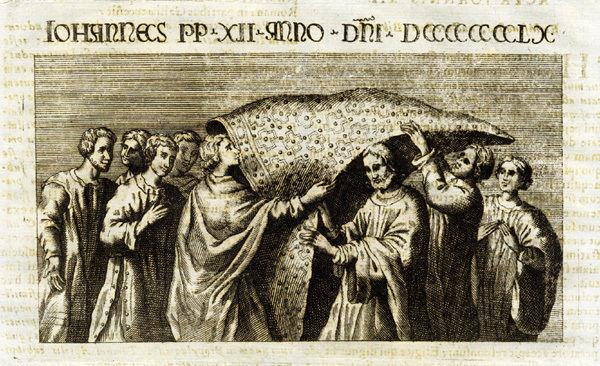
As if this wasn’t bad enough, John also made allegiances with German rulers to further cement his rule and more than once turned his back to those same rulers when they challenged that rule. Thanks to his rampant disloyalty, John was deposed numerous times. But, willing to stoop lower than any of his opponents, he always found his way back to the Vatican, and his stubborn determination to remain in power until the bitter end ultimately resulted in him dying while still in office.
If the contemporary Italian historian Liuprand of Cremona is to be believed, that death took place in 964, while John was caught committing adultery. Historians still debate whether he died of a stroke or had an unfortunate encounter with an outraged husband or lover.
In life as well as in death, John’s reputation loomed over the Catholic Church like a dark cloud. Bishops called him a “monster without one single virtue to atone for his many vices.” The Holy Roman Emperor Otto the Great said it would take “a whole day” to list all of John’s crimes.
Boniface VIII and the Inferno
The separation between church and state was a founding pillar of early modern democracies, one that many popes on this list sought to dismantle. Of all the incorrigible popes discussed by Chamberlin, however, none was more involved in “temporal” affairs than Boniface VIII.
Over the course of his nine-year reign, Boniface — a former student and practitioner of canon law — meddled in innumerable international affairs, leveraging the power of his office to turn the tide of major conflicts like the First War of Scottish Independence. Boniface fancied himself the highest authority under God and went to great lengths to remain independent from Europe’s empires. When, in 1296, Phillip IV barred members of the clergy from serving in his government, Boniface excommunicated him from the church.
Boniface’s eventful tenure inspired intense criticism. Dante Alighieri saw fit to work the pope into The Inferno. The crime that landed him there, in the eighth circle of hell, was fraud, specifically simony: the buying and selling of ecclesiastical privileges in exchange for money or services. Boniface believed the Holy Roman Emperor should always answer to the pope, whereas Dante — whose understanding of Christianity was rooted in the contemplation of one’s own sins — believed that neither position should hold sway over the other.
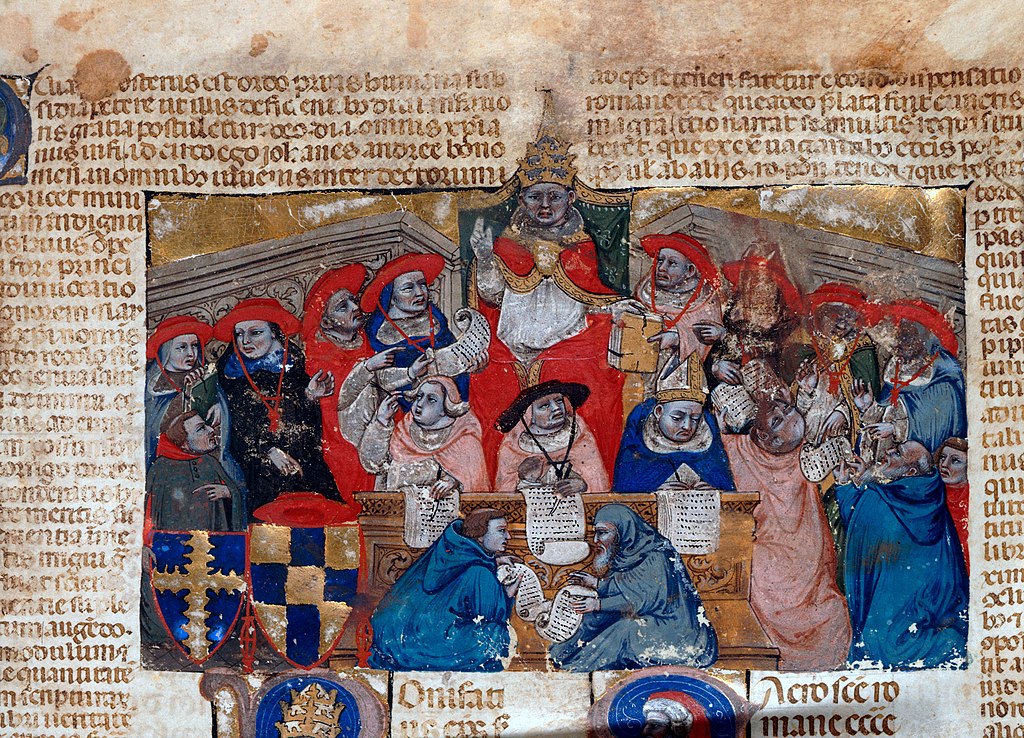
The fact that Dante saw fit to condemn Boniface to hell when the pope was still alive (and in power) shows the extent of his unpopularity. At the same time, his cameo in the Divine Comedy was the least of Boniface’s worries.
After declaring the Vatican’s independence from and superiority over the Holy Roman Empire, its emperor — the aforementioned Phillip — accused Boniface of both simony and sodomy before sending out his henchman to capture him. When his captors demanded his abdication, Boniface said that we would rather die. He was then slapped in the face by the French Chancellor in charge of the troops. Boniface was then held for three days, during which he was severely beaten and almost executed. Though his captors ultimately released him, the encounter left a considerable mark, and he died not long after.
Giovanni Villani said that when Boniface returned to Rome, “the grief which had hardened in the heart of Pope Boniface, by reason of the injury which he had received, produced in him (…) a strange malady so that he gnawed at himself as if he were mad.”
Popes: weak versus strong providence
The legacies of these popes not only tarnished the reputation of the Roman Catholic Church but also inspired inquiry into the legitimacy of the supposedly eternal truths that its religious teachings claim to contain.
Jeremy Walls, who teaches philosophy at Houston Baptist University, said “the fact that a number of popes have been bad in the sense that they did not even meet minimal standards of moral integrity and sincere piety poses a serious problem for Roman Catholicism.”
This problem has led theodicists, religious scholars who try to find logical proof for the omnibenevolence of God, to draw a distinction between what they refer to as weak providence and strong providence. Weak providence holds that God’s involvement in the human world — which includes the Catholic Church — is minimal, and that he is not directly responsible for the election or actions of popes. Strong providence, holds that God is directly responsible for the election and actions of popes, and that our confusion is not a refutation of his benevolence but simply a testament to our inability to understand His ways.
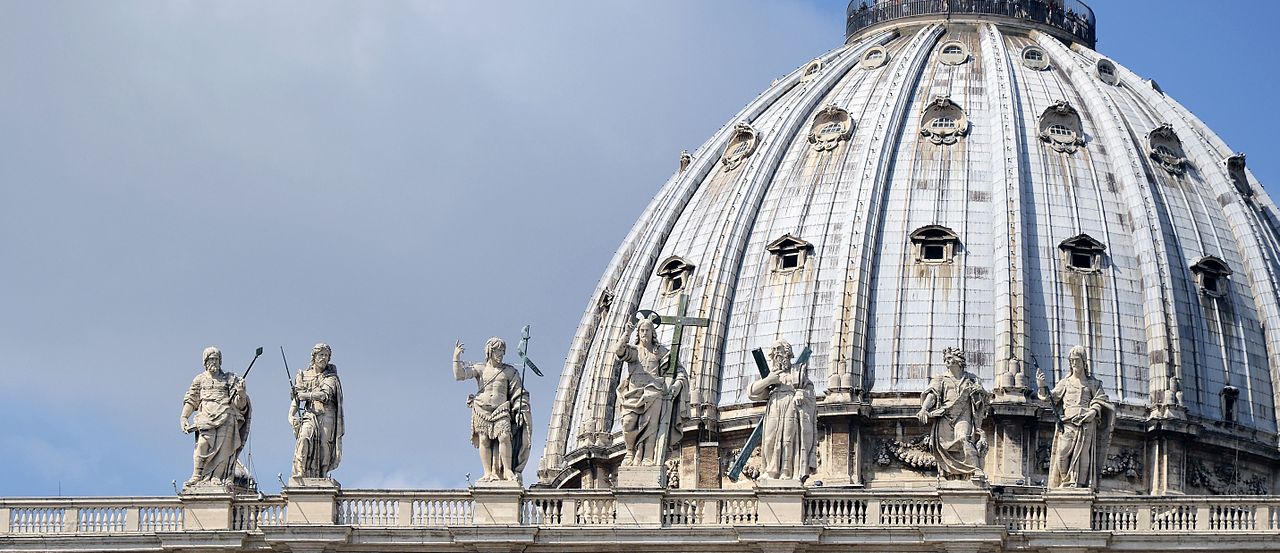
With every incident of corruption or criminal activity amongst the ranks of the church, strong providence becomes a little less convincing. More recently, sex abuse scandals have led people to question their faith. Even if one chooses to believe that God’s involvement with the papacy was always minimal, the legacies of the worst popes were so shocking that they called into question the very essence of the institution they represented.
